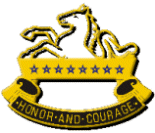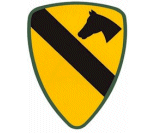DISPATCH 002--18 SEP 2006
Dear Friends,
Chaplains are, by nature, an interesting feature of the Army. As with most unique figures in our culture, the media often defines our understanding of these people. Chaplains are no exception. The most popular figure is Father Mulcahy from the television series MASH. Some might remember also the chaplain debating LTG George Patton in the movie that bore the latter’s name. Chaplains had roles in the movie Saving Private Ryan and the HBO mini-series Band of Brothers as well. Although I would like to think that we do not give undue credence to our stereotypes, as with most members of the clergy, chaplains tend to dwell in extremes—either they are very good or they are very bad. The type of chaplain I will be for this battalion remains to be seen, but I can tell you that, character generalizations aside, chaplains play an important and vital role in their units. I will break down these duties into three parts.
The first and most important responsibility is that chaplains ensure that every soldier, regardless of rank or religious preference, is allowed to practice his faith or to have no faith preference. This means that one’s religious preference or non-preference will not favorably or unfavorably prejudice the chain-of-command. The chaplain must ensure that the battalion commander’s religious support program is enacted and supported.
The second responsibility that chaplains have is to be the moral-ethical barometer for the unit. The chaplain must be willing to sacrifice his career and even his life in order to make sure that individual soldiers and the unit as a whole behave responsibly. Many remember the Abu Ghraib scandal that broke in 2004. When I heard that news while deployed to Iraq with the 1st ID, my first question was “Where was the chaplain?” I began checking our own detainee facility with increasing frequency. This part of my vocation is the easiest, for our soldiers usually act with honor and with integrity. Fortunately, cases like Abu Ghraib are the exception.
The third and last responsibility is that the unit chaplain should be the subject matter expert (SME) for the religious, cultural, and historical characteristics of the area of responsibility. For most of the peoples that inhabit our planet, there is little or no differentiation between history, culture, and religion. This is especially true in the Islamic world. These three issues have a direct impact on the missions and activities of our soldiers.
Sometimes folks get confused about who exactly the chaplain serves. I am here to serve the soldiers and the family members of the 3-8 CAB. I do not serve only those folks who belong to my faith group. While I am a person with a strong and passionate belief and practice of my faith, I am also a person who believes all people (even our enemy), as God’s Creation, should be respected in life and in death.
In closing, I encourage you to email me any questions you might have concerning what a chaplain does. I also want to correct a typing error in my last dispatch. In it I stated to “hesitate to call” if you had any questions or problems. I meant to say “do not hesitate to call” if you have any problems.
I continue to keep our Warhorse soldiers and family members in my prayers. Below I have listed two books that both my wife and I found to be helpful as we prepared for this upcoming deployment.
Grace, Mercy, and Peace,
CH (CPT) Kevin Wainwright
Warhorse Chaplain
kevin.wainwright@hotmail.com
-Separated by Duty, United in Love: A Guide to Long-Distance Relationships for Military Couples, Shellie Vandevoorde
-While They're at War: The True Story of American Families on the Homefront, Kristin Henderson







No comments:
Post a Comment